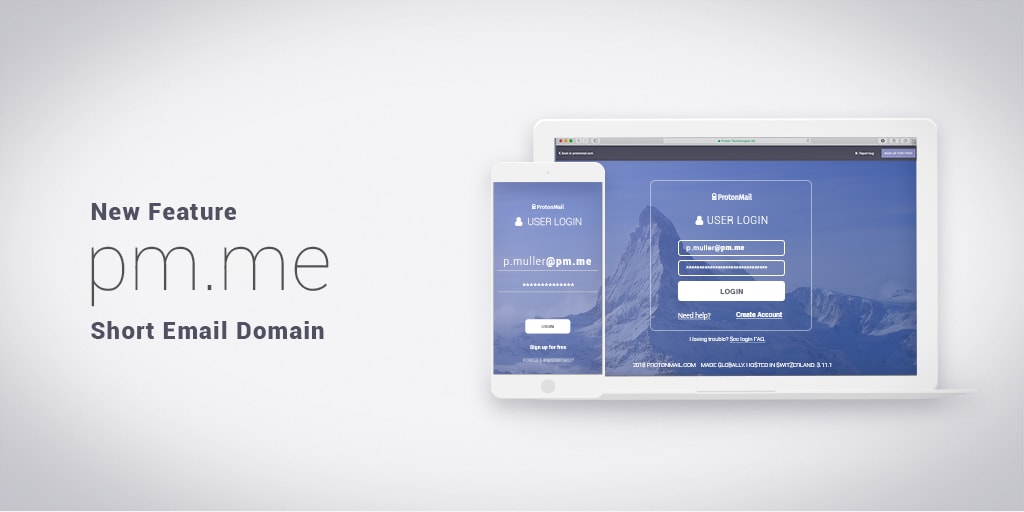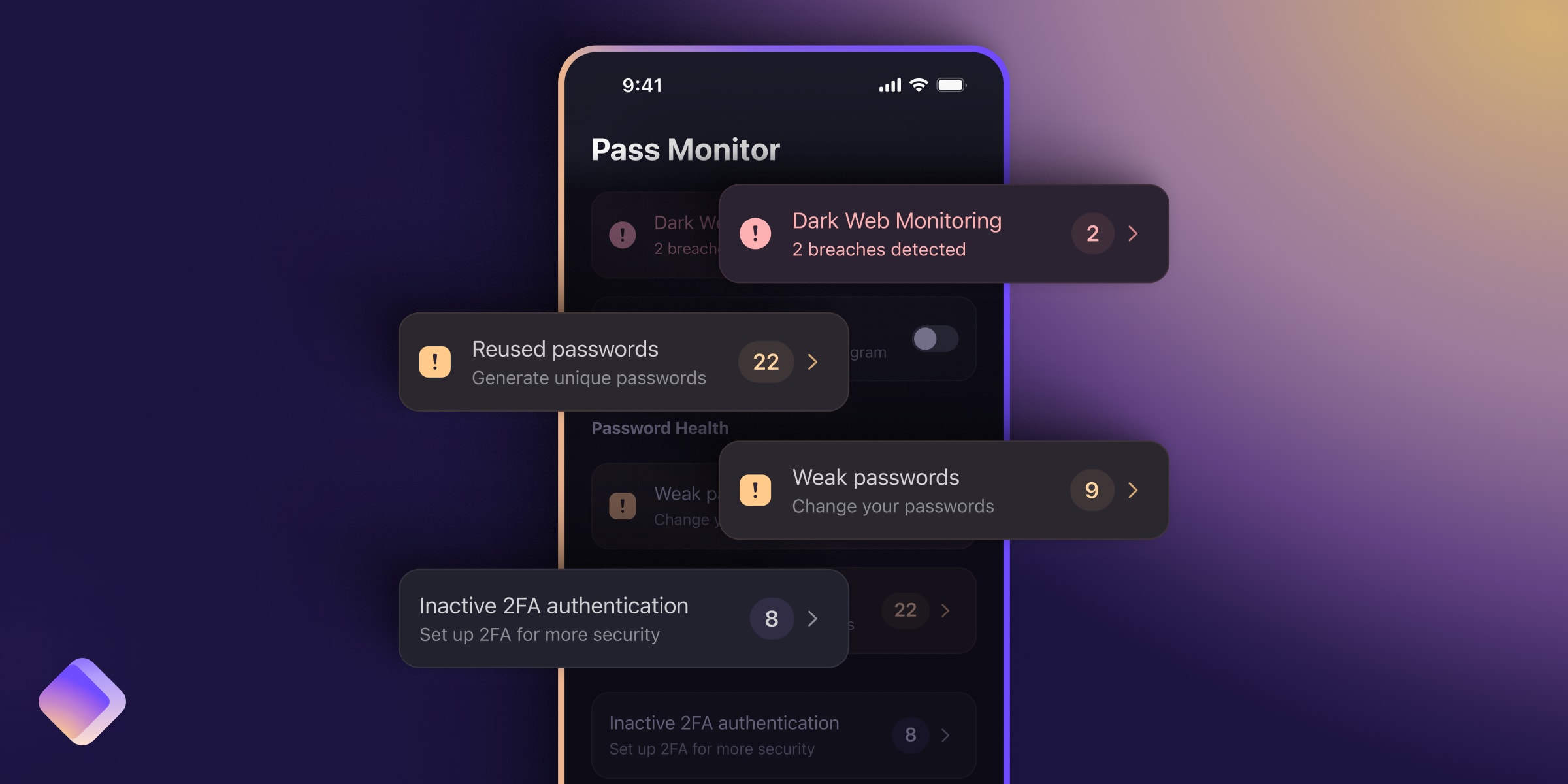This blog was updated on June 20, 2023, to explain that you now need to have a paid Proton plan to activate your @pm.me short address.
For a long time, some members of our community have been asking us for a shorter, easy-to-share email address. Part of this comes from the difficulty of spelling out P-R-O-T-O-N-M-A-I-L over the phone. Even back in 2015, we started looking into how to support this. It was not an easy task, since the domain name needed to be short, obtainable (not ridiculously expensive), memorable, not confusing, and related to Proton Mail somehow.
Why pm.me
Domains that were tried but ultimately rejected included pmail.com (too easily confused with Gmail), pm.co (too easily confused with .com), pm.com (unobtainable), pm.ch (the Swiss government wouldn’t give us this one), and proton.me (not quite short enough). Finally, this led us to pm.me.
We like pm.me for several reasons, and ultimately we think it’s a good choice. First, at four letters long, it’s pretty much as short as you can make a domain. Furthermore, it is a clever wordplay, as PM is the universal abbreviation for “private message”, and keeping your messages and communications private (as they should be) is precisely what Proton Mail does. Thus, we like to think of pm.me as “private message me” or “Proton Mail me“.
It also helps that .me domains are starting to become more popular and visible (for example, fb.me used by Facebook, paypal.me used by PayPal). In obtaining the pm.me domain name, we are happy to have the support of domain.me(new window), the company that manages the .ME TLD for Montenegro. ME domains typically are between 3 and 63 letters, but thanks to their support, we were able to obtain a two-letter domain.
How to use pm.me
As a company, we will continue to use @proton.me as our main domain name. However, if you’re on a Proton Mail paid plan, you can activate a separate @pm.me email address with your username at no extra cost. For example, if your username is john, you can activate john@pm.me to go with your existing john@proton.me address.
We hope that making Proton Mail email addresses easier than ever to share will contribute to the increased usage of Proton Mail and help to fulfill our vision of an internet where everybody can benefit from the security of encrypted email.
Activate your @pm.me address
First, you need to sign up for a paid Proton plan or upgrade your plan if you’re on Proton Free.
Then log in to your Proton Account at account.proton.me, and click Settings → All settings → Proton Mail → Messages and composing → Short domain → Activate username@pm.me.
Learn more about short email domain (@pm.me) addresses(new window)
For those who have been waiting for years for this feature, thanks for your patience! With your support, we look forward to adding even more features in the near future that will continue to make Proton Mail the best encrypted email service(new window).
Best Regards,
The Proton Team
Sign up and get a free encrypted email (new window)account from Proton Mail.
We also provide a free VPN service(new window) to protect your privacy.
Proton Mail and Proton VPN are funded by community contributions. If you would like to support our development efforts, you can upgrade to a paid plan. Thank you for your support!














